Cover Story
Hotels Shouldn’t Feel Like Home They Should Feel Extraordinary

In an exclusive interview with Bani Haddad, Founder and Managing Director of Aleph Hospitality, we explore the visionary journey of a leader who has transformed the hospitality landscape in the Middle East and Africa. Bani discusses his motivation to establish Aleph Hospitality, highlighting the importance of creating an extraordinary experience that goes beyond the “home away from home” concept. Bani also shares insights on his lasting legacy he hopes to leave—a legacy that redefines both the guest experience and the work-life philosophy within the hospitality industry.
You have had a remarkable journey, transitioning from working with top international brands to founding Aleph Hospitality. What inspired you to start something of your own?
The primary motivation for me was the desire to create and build something impactful, as well as to establish an organization. That has always been the core of my ambition behind starting Aleph Hospitality. While some individuals aspire to build a successful career within organizations, and others may aim to work with NGOs or charitable institutions, my deep motivation has always been to create an organization. With my extensive experience working with various hotel groups, the idea of having my own hotel management company gradually took shape.
As a top hotelier and visionary leader, how do you foster innovation within your company?
There are two key elements I focus on. Firstly, it’s crucial to allow people to do what they are best at. I aim to recruit individuals who possess more expertise than I do in their specific fields. Once that is achieved, it’s essential to give them the freedom and empowerment to carry out their roles. Without this, creativity is stifled. However, that alone is not enough. You must set clear goals, a vision, and a direction for people to push their limits and unlock their creativity. For me, creating a relaxed and comfortable work environment is essential. I want everyone to feel excited about coming to work, not burdened by it. This positive / THE MAIN COURSE / September 2024 31Hospitality Integrator www.integratormedia.com culture at Aleph Hospitality directly influences how people think and perform, enabling them to come up with new ideas and deliver great results.
Secondly, at Aleph Hospitality, we established the Aleph Innovation Lab, where we invite startups to collaborate with us. The lab serves multiple purposes: it provides opportunities for others, while also inspiring myself and the team. Having young people working on fresh ideas energizes us and pushes the team beyond their routine tasks.
Regarding the name “Aleph Hospitality,” which is the first letter of the Arabic alphabet, what inspired you to choose this name for your company?
We were the first to introduce third-party or independent hotel management in the region in a professional, structured way, marking a turning point in how the industry operates here. Aleph, as you’ve rightly noted, is the first letter of the Arabic alphabet. But going back 4000 years, Aleph was actually the first letter invented by the Phoenician people, which later evolved into the Greek and Roman alphabets, and eventually, the Arabic alphabet. Aleph became alpha, and alpha became A. This development essentially revolutionized communication for all of us. So, I thought it fitting to choose a name that symbolizes a significant shift—just as Aleph changed communication, we’re changing the way the hotel industry functions in this part of the world.
We’re not pretending to reinvent the wheel here at Aleph; it’s a proven concept that has worked in the US and Europe for years, but it was new to the Middle East and Africa when we introduced it.
Aleph Hospitality introduced the independent hotel management model in the Middle East and Africa. How this has revolutionized the hospitality industry?
Traditionally, when large hotel groups like Intercontinental, Hilton, and Sheraton came to the region 35-40 years ago, they managed the hotels themselves, which worked fine. But when we started in 2015, we took a different approach. We proposed that instead of these brands managing the hotels directly, they could grant us the franchise rights, similar to how it’s done in the US and Europe, and we would handle the day-to-day operations. It took a few years to convince the brands that we had the right infrastructure and capability in the region to uphold their standards. At the same time, we had to build trust with hotel investors and owners, so they felt confident entrusting their assets to us. As this model gained traction, we did a lot of educational work through conferences, press articles, and presentations to promote it. Now, it’s not just us using this model—large American and European hotel groups have followed suit. Some brands, which used to manage around 80-90% of their properties directly, now have about 60% franchised and only 40% managed by themselves. Hotel owners, too, have become much more open to this, often preferring third-party management over brand-managed operations.
How does Aleph Hospitality define luxury, and in your view, what constitutes true luxury in hospitality?
Aleph Hospitality has recently ventured into the luxury segment. We have opened one property in Dubai and are in the process of acquiring two luxury properties in Morocco. This marks the beginning of a new division at Aleph Hospitality, one specifically tailored to the luxury market. Managing luxury hotels is fundamentally different from operating a 4-star or even a standard 5-star hotel, as it requires an entirely distinct approach. This approach begins with recruiting the right individuals and implementing suitable training programs. However, the key focus is on how we cater to the needs of our guests, not only upon their arrival at the hotel but also well in advance. This process starts with the design of the hotel, the facilities we provide, and the carefully crafted programs designed specifically for our guests.
Even at the booking stage, we aim to create an atmosphere that makes guests feel special, whether they are contacting the hotel or visiting our website. The luxury experience should begin before the guests set foot in the hotel. From there, we maintain communication with the guests, ensuring they feel valued and that we have taken their preferences and anticipations into account. By the time they arrive, our goal is not just to meet, but to exceed, their expectations. For us, luxury involves a unique mindset, and we are developing a dedicated division to manage this segment. While it is still in its early stages, this is the path we are pursuing.
With a pipeline of 50 hotels by 2027, what are the major factors driving you toward that ambitious goal?
It primarily comes down to the evolving market and changing demands. As I mentioned, hotel owners are now more exposed to different management models. They’re realizing, “My asset can be managed differently, while still carrying the brand, and I can make more profit. I can have more involvement in the day-to-day operations and enjoy greater flexibility.” There’s nothing more reassuring for someone who has invested millions, sometimes hundreds of millions, in a hotel than being able to directly reach a decision-maker managing their assets. We don’t have multiple layers—owners can contact me, my business partner, or our CEO, and immediate decisions can be made.
The first key driver for our growth is the heightened awareness within the hotel investment community. Owners now better understand the benefits of this model. The second driver is the international hotel brands themselves. They are much more comfortable franchising their brands in the region, just as they do in the US and Europe. They / THE MAIN COURSE / September 2024 33Hospitality Integrator www.integratormedia.com ALEPH HOSPITALITY are even sending opportunities our way, saying, “We have someone interested in the brand. Why don’t you manage it? We’ll just provide the franchise.” And lastly, it’s our people. We have great people driving this growth.
What legacy do you hope to leave for Aleph Hospitality?
Well, I hope we continue to build an organization where people don’t feel like they’re just waking up and going to work. There are a couple of concepts I really dislike. One is the “home away from home” concept in hotels. No matter how luxurious or comfortable the hotel is, when people go to a hotel, they’re looking for a different experience—not to feel like they’re at home. I don’t want anyone telling me “welcome home” when I walk into a hotel. I’m here for something new, something unique, not to replicate home life.
Another concept I struggle with is the idea of “work-life balance.” I get the intention behind it, but why should work and life be two separate things that need balancing? Work is life, and life is balanced when you enjoy what you do. If we blur the lines between work and personal life, people will be much happier. It shouldn’t feel like an obligation to go to work—it should just be part of a fulfilling life. That’s the legacy I hope to leave at Aleph Hospitality, and I believe we’re already on the path to achieving it.
From a business perspective, I also want to make a significant impact on the profitability of hotel investors by giving them more control over their assets and bottom lines. That’s another major part of the legacy we aim to create.
Cover Story
Inside Zoho’s UAE Data Centers!
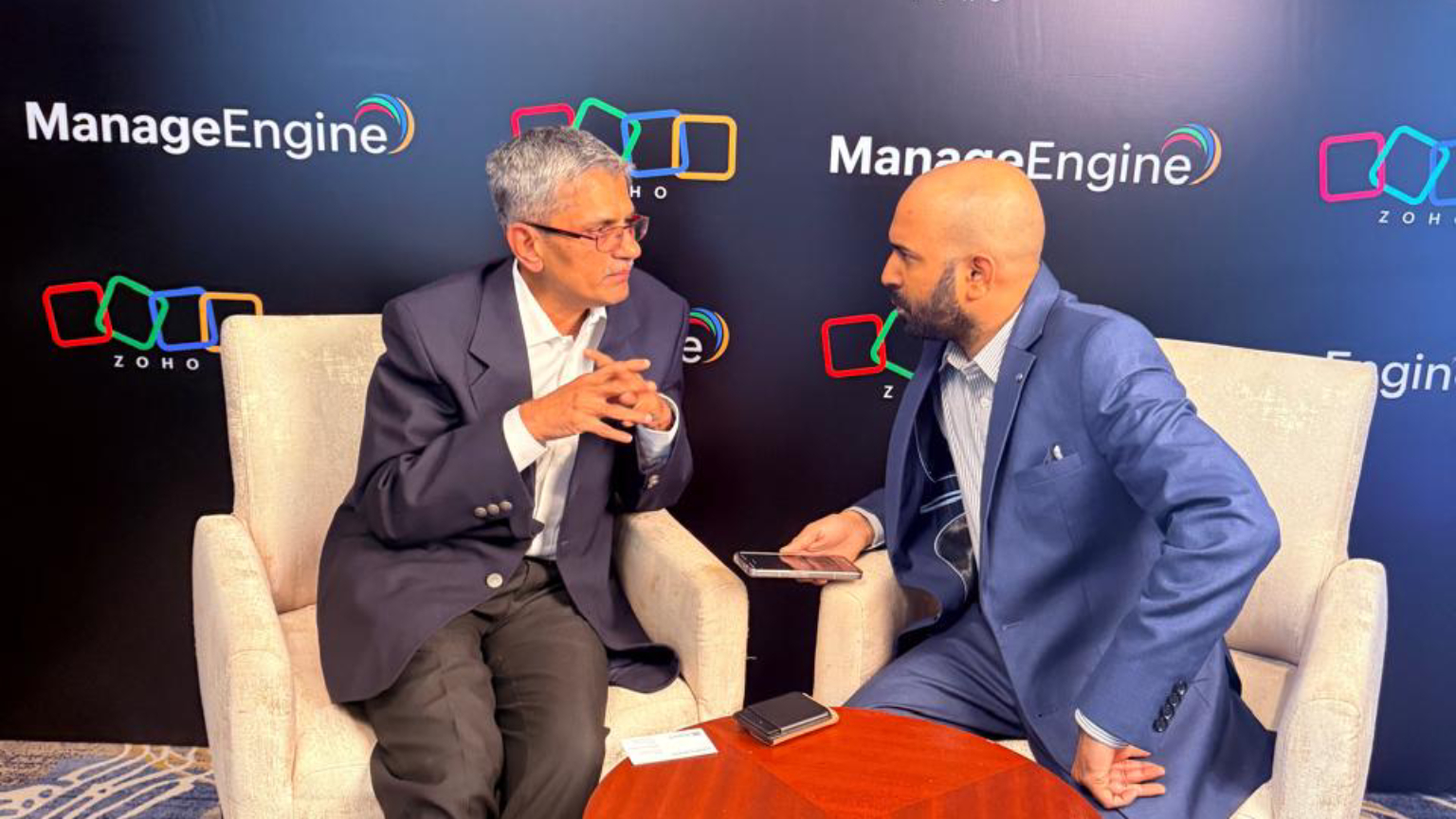
Playing the Long Game in Cloud Infrastructure, Data Centers, Privacy, Cybersecurity, and Growth in the UAE
The Integrator had an interview with Shailesh Davey, Co-founder & CEO, Zoho, during the official launch of their newly opened data centers in the UAE.
Zoho is on an executing path; as they say, it is a disciplined, long-term regional strategy by deploying and right-sizing data centers in Saudi and the UAE, aligning with global trends in data sovereignty and privacy.
The UAE is a priority growth market fueled by regulatory and business-led digitization, supported by local teams and partners. Customers will see faster performance from local hosting, while flagship products Zoho CRM Plus and Zoho Books lead growth, with rapid regulatory feature alignments.
Zoho currently operates more than 18 data centers globally, with the UAE being the latest addition. From a regional perspective, does the Middle East require more data centers, or are the facilities in the UAE and Saudi Arabia sufficient to support Zoho’s growth plans?
We currently operate two data centers in Saudi Arabia, which primarily serve the Saudi market. In the UAE, we have now established two data centers—one in Dubai and another in Abu Dhabi. These facilities have been carefully right-sized based on our expected growth in the region.
We have been present in this market since 2009, so we have a clear understanding of customer adoption patterns, data usage behavior, and growth trajectories. Based on this data, we have ensured sufficient capacity for the next two to four and a half years. Every six months, our teams review capacity utilization and growth rates. If we see demand growing faster than anticipated, we simply expand further.
This approach isn’t new for us—we’ve been doing this consistently since 2006–2007.
Zoho is widely known for its capital discipline and strong stance on privacy. With increasing global rhetoric around cybersecurity, data sovereignty, and regulations—especially in markets like the UAE—do you believe governments are emphasizing certifications due to a trust deficit with large tech companies, or is this part of a broader global shift?
There are a few important factors at play here. First, some of the world’s largest technology companies have built their businesses by monetizing user data. This is openly acknowledged as part of their business model. While it may be legal, it understandably creates discomfort—especially for governments concerned about the data of their citizens, and for individuals who often accept terms and conditions without fully realizing what they are agreeing to.
Second, we are now living in a rapidly evolving geopolitical environment. The shift toward a multipolar world has accelerated significantly over the last couple of years. In this context, it is only practical for governments to introduce regulations that ensure clarity around where data resides, how it is handled, and whether companies are compliant with local laws.
From Zoho’s perspective, this has always aligned with our philosophy. Wherever we set up data centers, we comply fully with local regulations and data sovereignty requirements. Certifications and compliance are simply proof points of that commitment.
Zoho has seen strong growth in the UAE. Which flagship products are driving this momentum, and how does the establishment of local data centers translate into tangible benefits for businesses in terms of innovation and performance?
Let me start with the impact of the data centers. The most immediate and visible benefit is speed. Earlier, customer data was being served from the US, which meant latency due to the physical distance. With local data centers in the UAE, response times are significantly faster. This directly improves user experience, in addition to meeting security and compliance requirements.
In terms of products, our fastest-growing solution in the UAE is Zoho CRM Plus. For any business, sales is a critical function, and CRM Plus is a comprehensive, customer-facing suite that supports sales, marketing, customer support, service, and even project management.
The second major growth driver is Zoho Books, which is widely used by finance and accounting teams. With increasing regulatory requirements around accounting, compliance, and e-invoicing in the UAE, Zoho Books helps businesses stay compliant while maintaining accurate and transparent financial records.
Given the pace at which regulations are evolving, especially in areas like e-invoicing, our local presence allows us to respond very quickly. We see significant long-term potential for both CRM Plus and Zoho Books in this market.
One of Zoho’s recent consumer-focused initiatives Aaratai application has gained strong traction in India and has generated a lot of discussion. Do you see similar B2C-led innovations helping Zoho reach a wider audience in the UAE as well? Could we see such solutions being developed or localized for this market?
This has been an interesting experiment for us. What we’ve essentially done is take the technology we built for the B2B world, adapt it, and make it accessible to B2C users. That’s how this particular app was born, and it received strong tailwinds in the Indian market.
Interestingly, due to the large Indian diaspora in the UAE, adoption naturally extended here as well. Our immediate focus is to ensure that the product is reliable, feature-rich, and delivers long-term value to users.
Once we are confident that the model works at scale, we will look at expanding into other markets where there is strong synergy. Markets with a significant Indian diaspora are a natural starting point, and Europe is high on that list.
Automotive
Goodyear continues support for Team De Rooy in the 2025 Dakar Rally
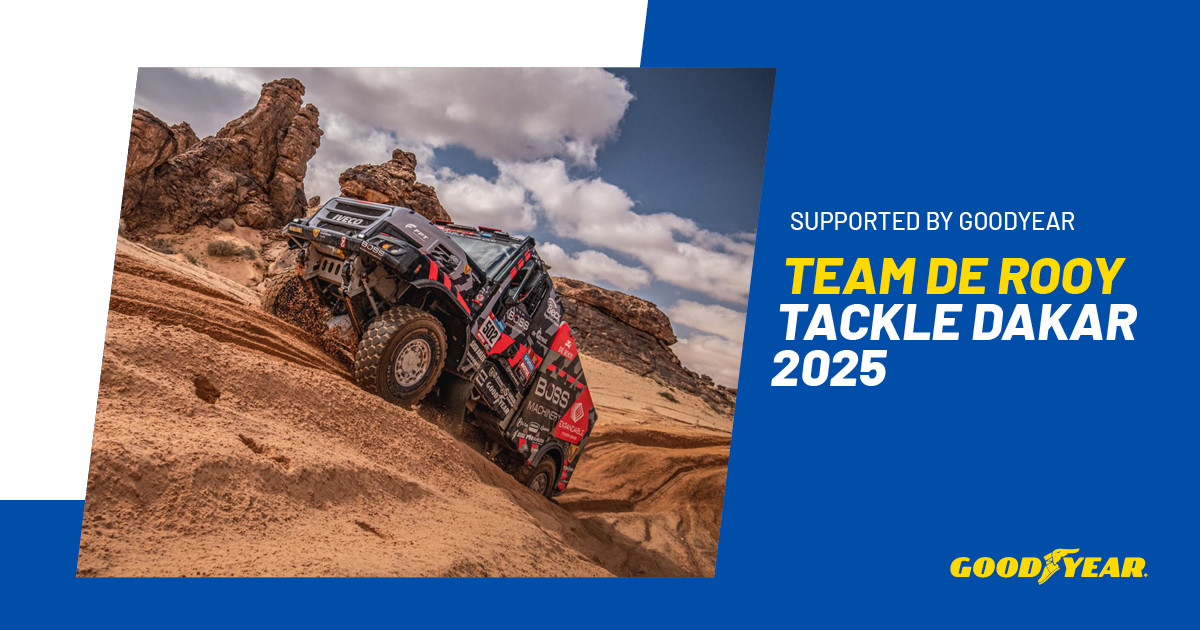
Goodyear continues its partnership with Team De Rooy for the upcoming Dakar Rally 2025. As the official tire supplier, Goodyear will equip the Dutch team with its high-performance Goodyear OFFROAD tires and advanced Tire Pressure Monitoring System (TPMS), helping to ensure reliable performance throughout the rally’s demanding stages. This collaboration highlights Goodyear’s dedication to truck motorsport, combining innovation with proven durability on some of the world’s toughest terrains.
Dakar 2025: new challenges await
The 2025 Dakar Rally, running from January 3 to January 17, will cover nearly 8,000 kilometers, including over 5,000 kilometers of competitive stages, starting in Bisha and finishing in Shubaytah. This edition ramps up the difficulty, featuring an early 48-hour chrono stage that flows into the marathon stage, setting a challenging pace from the outset. In the second week, competitors will tackle the demanding dunes of the Empty Quarter, with over 45% of the course on separate tracks for different vehicle classes, enhancing safety while complicating navigation.
Goodyear OFFROAD tires and TPMS: performance in challenging conditions
Team De Rooy relies on Goodyear OFFROAD tires for their durability and reliable traction across different conditions. Designed to handle heat and challenging surfaces, these tires help reduce heat buildup at high speeds and provide consistent performance on sand, rocks, and steep slopes.
Goodyear’s TPMS offers real-time monitoring of tire pressure and temperature, helping the team make quick adjustments and avoid potential issues. This advanced system helps to minimize downtime and supports better strategic decisions—crucial for maintaining momentum during the rally.
A Legacy of motorsport excellence
Goodyear’s continued support of Team De Rooy highlights its long-standing commitment to truck motorsport. As the title sponsor of the Goodyear FIA European Truck Racing Championship (ETRC), Goodyear uses motorsport as a proving ground for tire technology advancements. The partnership with Team De Rooy reflects this commitment, driving innovation and performance in demanding environments.
Maciej Szymański, Marketing Director Commercial EMEA at Goodyear, commented:
“Our continued collaboration with Team De Rooy for Dakar 2025 underscores our commitment to supporting motorsport teams in extreme conditions. With Goodyear OFFROAD tires and TPMS, we aim to provide the reliability needed to tackle the rally’s challenges. We wish Team De Rooy all the best and look forward to another exciting competition at this iconic rally”.

Cover Story
PLAUD Note Pro: This Tiny AI Recorder Might Be the Smartest Life Upgrade You Make!
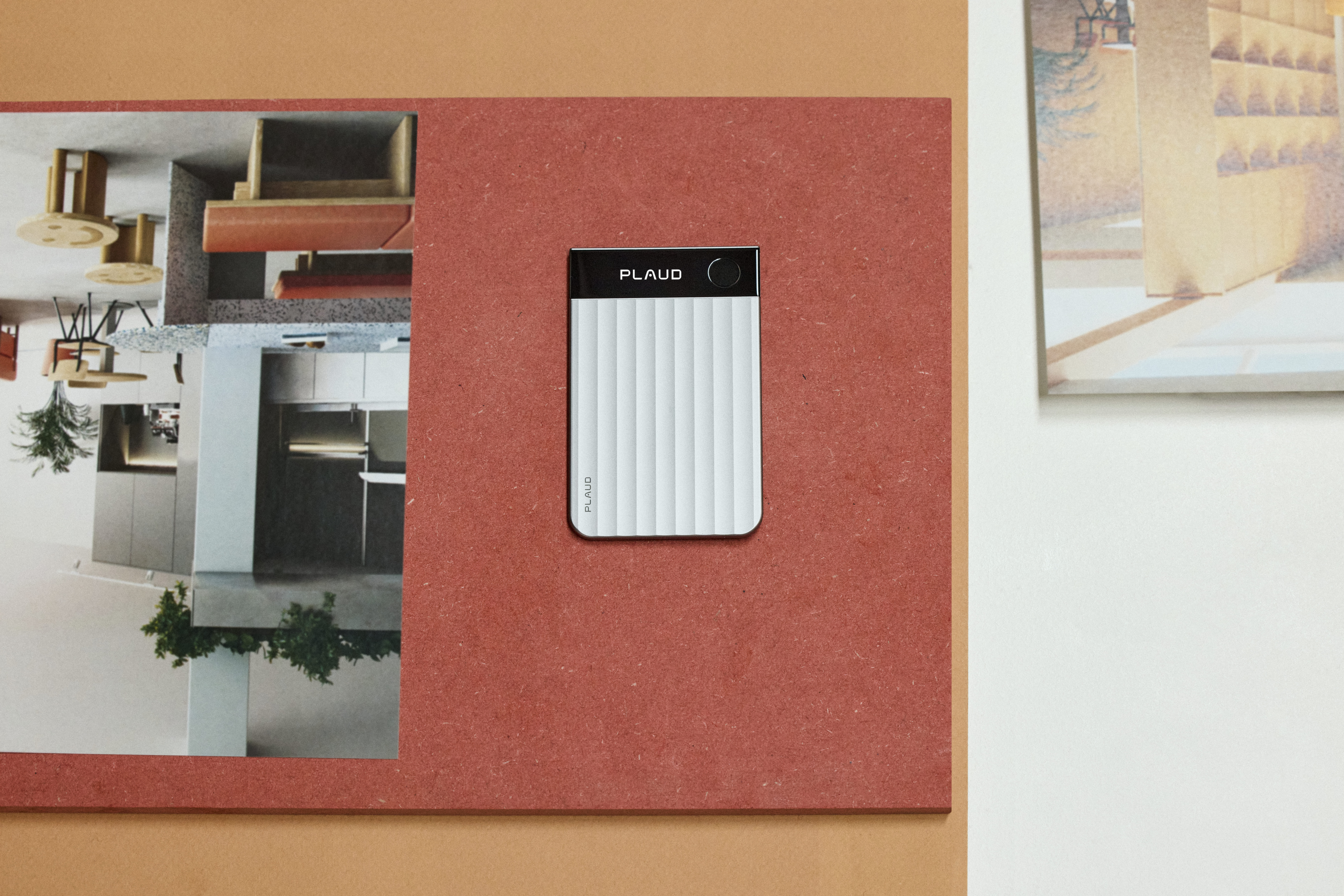
By Srijith KN
I’ve been using the Plaud Note Pro for over three months now, and this is a device that has quietly earned a permanent place in my daily life now. Let me walk you through what it does—and why I say that so?
Well at first I thought this wasn’t going to do much with my life, and by the looks of it Plaud Note Pro looks like a tiny, card-sized gadget—minimal, unobtrusive to carry it around.
With a single press of the top button, it starts recording meetings, classes, interviews, or discussions. Once you end your session, the audio is seamlessly transferred to the Plaud app on your phone, where it’s transformed into structured outputs—summaries, action lists, mind maps, and more.
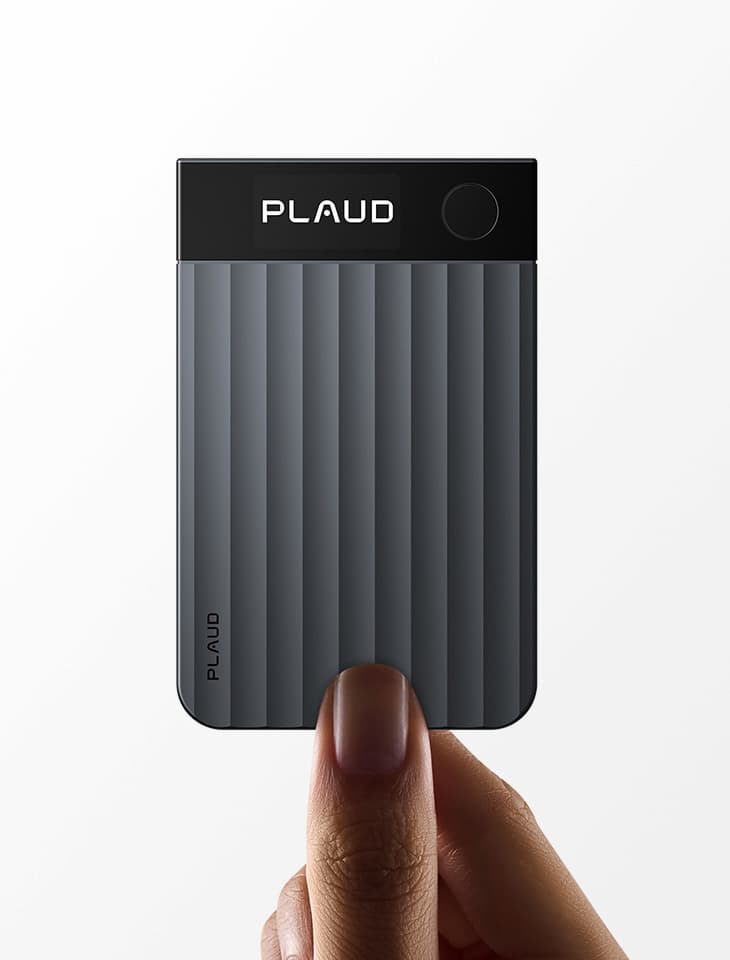
In essence, it’s a capture device that takes care of one part of your work so you can concentrate on the bigger game.
Design-wise, the device feels premium, it features a small display that shows battery level, recording status, and transfer progress—just enough information without distraction. The ripple-textured finish looks elegant and feels solid, paired with a clean, responsive button. It also comes with a magnetic case that snaps securely onto the back of your phone, sitting flush and tight, making it easy to carry around without thinking twice.
Battery life is another standout. On a full charge, the Plaud Note Pro can last up to 60 days, even with frequent, long recording sessions. Charging anxiety simply doesn’t exist here.
Well, my impressions about the device changed once I had an audio captured. I tested this in a busy press conference setting—eight to ten journalists around me, multiple voices, ambient noise—and the recording came out sharp and clear. Thanks to its four-microphone array, it captures voices clearly from up to four to five meters away, isolating speech with precision and keeping voices naturally forward. This directly translates into cleaner transcripts. It supports 120 languages, and yes, I even tested transcription into Malayalam—it worked remarkably well, condensed the entire convo-interview that I had during an automotive racing show that I was into.
Real meetings or interviews are rarely happens in a neat environment, and that’s where I found the Plaud Note Pro working for me. It captures nuances and details I often miss in the moment. As a journalist, that’s invaluable. The app also allows you to add photos during recordings, enriching your notes with context and visuals.
I tested transferring files over 20 minutes long, and the process was smooth and quick. Accessing the recordings on my PC via the browser was equally intuitive—everything is easy to navigate and well laid out.
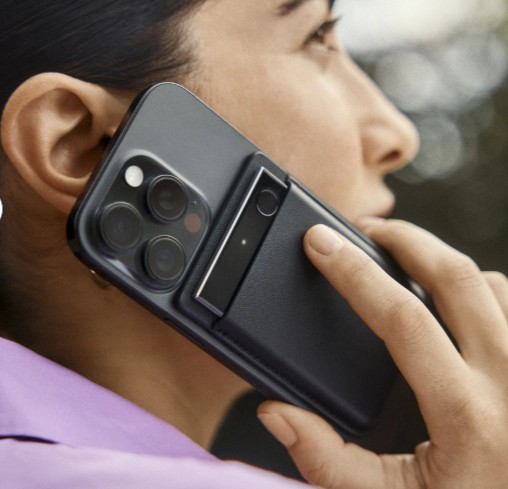
Now to what is inside this tiny recorder. Well, the core of the experience is Plaud Intelligence, the AI engine powering all Plaud note-takers. It dynamically routes tasks across OpenAI, Anthropic, and Google’s latest LLMs to deliver professional-grade results. With over 3,000 templates, AI Suggestions, and features like Ask Plaud, the system turns raw conversations into organized, searchable, and actionable insights. These capabilities are available across the Plaud App (iOS and Android) and Plaud Web.
Privacy is what I happen to see them look at seriously. All data is protected under strict compliance standards, including SOC 2, HIPAA, GDPR, and EN18031, ensuring enterprise-grade security.
What makes the AI experience truly effective is the quality of input. Unlike a phone recorder—where notifications, distractions, and inconsistent mic pickup interfere—the Plaud Note Pro does one job and does it exceptionally well. It records cleanly, consistently, and without interruption, delivering what is easily one of the smoothest recording and transcription experiences I’ve used so far.
I’m genuinely curious to see how Plaud evolves this product further. If this is where they are today, the next version should be very interesting indeed.
“The Plaud Note Pro isn’t just a recorder; it’s a pocket-sized thinking partner that captures the details so you can think bigger, clearer, and faster.”
- Plaud Note Pro is now available for pre-order at https://uae.plaud.ai/pages/plaud-note-pro
- Plaud Note and NotePin are available at https://uae.plaud.ai
-

 Tech News2 years ago
Tech News2 years agoDenodo Bolsters Executive Team by Hiring Christophe Culine as its Chief Revenue Officer
-
News10 years ago
SENDQUICK (TALARIAX) INTRODUCES SQOOPE – THE BREAKTHROUGH IN MOBILE MESSAGING
-

 VAR10 months ago
VAR10 months agoMicrosoft Launches New Surface Copilot+ PCs for Business
-

 Tech Interviews2 years ago
Tech Interviews2 years agoNavigating the Cybersecurity Landscape in Hybrid Work Environments
-

 Tech News7 months ago
Tech News7 months agoNothing Launches flagship Nothing Phone (3) and Headphone (1) in theme with the Iconic Museum of the Future in Dubai
-

 VAR1 year ago
VAR1 year agoSamsung Galaxy Z Fold6 vs Google Pixel 9 Pro Fold: Clash Of The Folding Phenoms
-

 Automotive1 year ago
Automotive1 year agoAGMC Launches the RIDDARA RD6 High Performance Fully Electric 4×4 Pickup
-

 Tech News2 years ago
Tech News2 years agoBrighton College Abu Dhabi and Brighton College Al Ain Donate 954 IT Devices in Support of ‘Donate Your Own Device’ Campaign


















